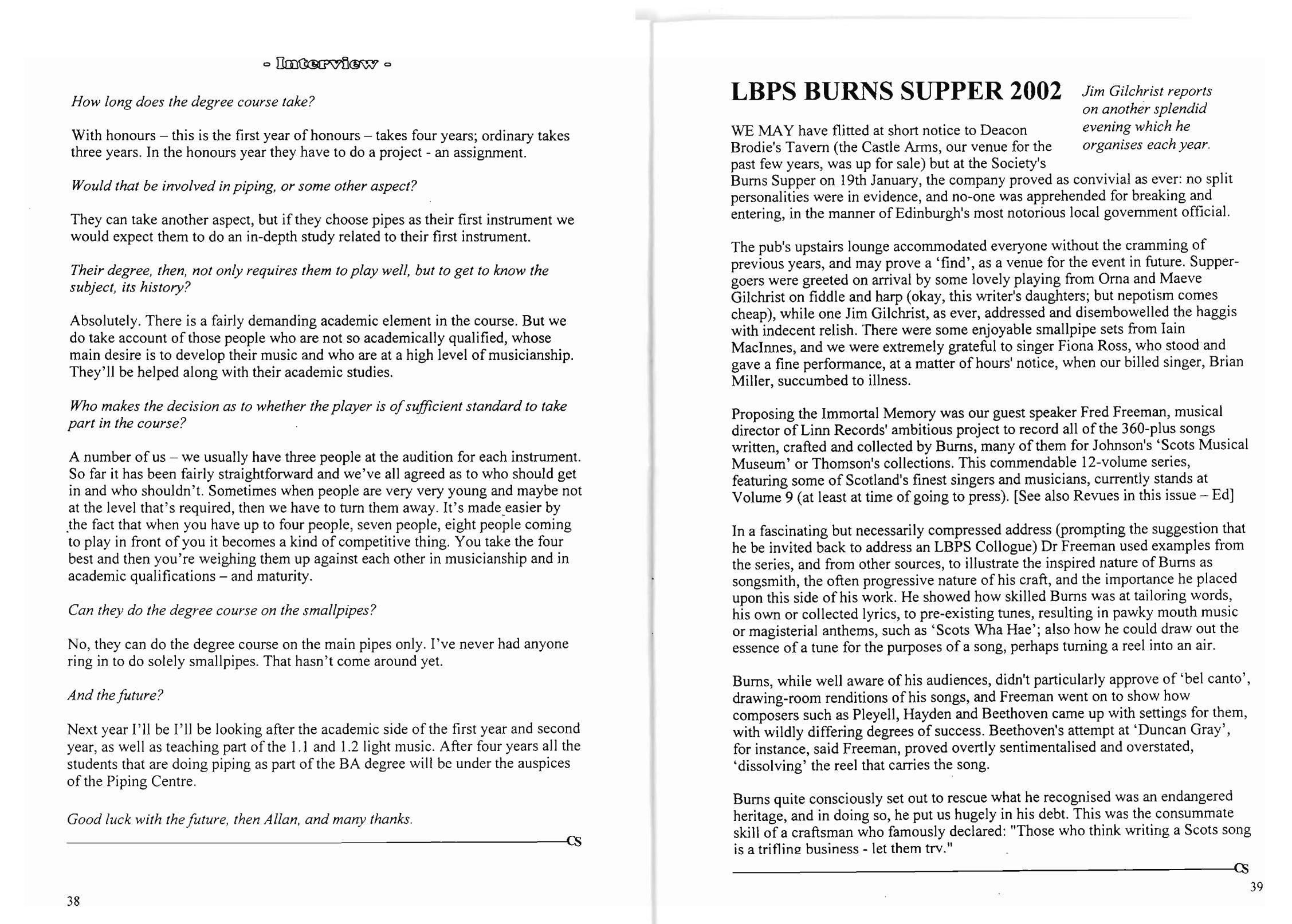LBPS Burns Supper 2002

Jim Gilchrist reports on another splendid evening which he organises each year.
WE MAY have flitted at short notice to Deacon Brodie’s Tavern, (the Castle Arms, our venue for the past few years, was up for sale) but at the Society’s Burns Supper on 19th January, the company proved as convivial as ever: no split personalities were in evidence, and no-one was apprehended for breaking and entering, in the manner of Edinburgh’s most notorious local government official.
The pub’s upstairs lounge accommodated everyone without the cramming of previous years, and may prove a ‘find’, as a venue for the event in future. Supper-goers were greeted on arrival by some lovely playing from Oma and Maeve Gilchrist on fiddle and harp (okay, this writer’s daughters; but nepotism comes cheap), while one Jim Gilchrist, as ever, addressed and disembowelled the haggis with indecent relish. There were some enjoyable smallpipe sets from Iain MacInnes, and we were extremely grateful to singer Fiona Ross, who stood and gave a fine performance, at a matter of hours’ notice, when our billed singer, Brian Miller, succumbed to illness.
Proposing the Immortal Memory was our guest speaker Fred Freeman, musical director of Linn Records’ ambitious project to record all of the 360-plus songs written, crafted and collected by Burns, many of them for Johnson’s ‘Scots Musical Museum’ or Thomson’s collections. This commendable 12-volume series, featuring some of Scotland's finest sing- ers and musicians, currently stands at Volume 9 (at least at time of going to press). [See also Revues in this issue - Ed]
In a fascinating but necessarily compressed address (prompting the suggestion that he be invited back to address an LBPS Collogue) Dr Freeman used examples from the series, and from other sources, to illustrate the inspired nature of Burns as songsmith, the often pro- gressive nature of his craft, and the importance he placed upon this side of his work. He showed how skilled Burns was at tailoring words, his own or collected lyrics, to pre- existing tunes, resulting in pawky mouth music or magisterial anthems, such as ‘Scots Wha Hae’; also how he could draw out the essence of a tune for the purposes of a song, perhaps turning a reel into an air.
Burns, while well aware of his audiences, didn’t particularly approve of ‘bel canto’, draw- ing room renditions of his songs, and Freeman went on to show how composers such as Pleyell, Hayden and Beethoven came up with settings for them, with wildly differing de- grees of success. Beethoven’s attempt at ‘Duncan Gray’, for instance, said Freeman, proved overtly sentimentalised and overstated, ‘dissolving’ the reel that carries the song.
Burns quite consciously set out to rescue what he recognised was an endangered heritage, and in doing so, he put us hugely in his debt. This was the consummate skill of a craftsman who famously declared: “Those who think writing a Scots song is a trifling business - let them try.”
